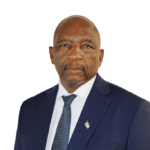Theko Tlebere
Lesotho’s political landscape is entering a pivotal era under the leadership of Prime Minister Sam Matekane. Elected with great optimism, Matekane, representing the Revolution for Prosperity (RFP), pledged to combat corruption, strengthen governance, and improve the livelihoods of Basotho. However, like many coalition democracies, his government faces the dual challenge of effective governance amid complex party politics. To secure a legacy of progress and a second term, Matekane must navigate the delicate balance between governmental responsibilities and political dynamics. Failing to manage this interplay could jeopardise his political future and the essential reforms his administration has initiated. This week we will highlight the importance of managing party politics to secure the bigger picture of Lesotho’s future.
A quick reminder that we should begin with is that Lesotho operates under a constitutional monarchy with a parliamentary system. The King serves as the ceremonial Head of State, while the Prime Minister wields executive power, supported by a multi-party parliament. Ntate Matekane’s RFP came to power in 2022, breaking the political dominance of established parties like the Democratic Congress (DC) and the All Basotho Convention (ABC). This victory, however, has brought political challenges that cannot be ignored. As a relatively new party, the RFP must establish a solid organisational base and cultivate a loyal following. Governing in a coalition also requires balancing diverse interests, which can sometimes hinder decisive action and decision making.
In parliamentary democracies, party politics can often constrain leaders. Legislators and party members may prioritise their interests over national priorities as Lesotho has experienced in previous parliaments. Internal divisions or dissatisfaction within the party can lead to a loss of confidence in the leader a fate that has befallen many of Lesotho’s Prime Ministers, as evidenced by the regular votes of no confidence recorded throughout Lesotho’s political history. Although Matekane’s administration is currently stable after the ‘kotopo’ law was nullified by the Appeal court, the PM must remain vigilant against these risks. If he does not strengthen the internal cohesion and strategic direction of the RFP, he could become vulnerable to factional interests that undermine national objectives.
Building a strong and disciplined RFP should be the main focus for ntate Matekane, in order to succeed. It is imperative to understand that the thinking mentality of any leader should encompass the following strategies; the first strategy is that of institutionalising the Party, what this means is that the RFP leadership should invest in developing robust structures that promote transparency, accountability, and internal democracy that will be crucial for sustaining public trust and fostering a culture of ethical governance within the party.
Secondly, cultivating grassroots support is essential. This means that strengthening connections with the electorate by addressing immediate concerns and ensuring that the RFP remains relevant to all citizens, not just urban elites, is essential for solidifying a broad base of support.
Third, promoting unity and vision among the party stalwarts. This can be achieved by reducing factionalism by aligning party members around a collective vision for Lesotho’s development which will help create a more cohesive and focused political entity capable of effectively pursuing common goals.
Lastly, training and empowerment, and investing in capacity-building programs for party members to enhance their governance and leadership skills will not only improve the overall effectiveness of the party but also empower its representatives to operate with confidence and integrity in their roles.
The recent elections in Botswana and the United States offer contrasting lessons for Prime Minister Matekane, particularly in managing party dynamics and preparing for future electoral contests. In the 2019 elections, the Botswana Democratic Party (BDP) maintained its hold on power under President Mokgweetsi Masisi. However, the recent 2024 elections signal a significant shift, highlighted by opposition leader Duma Boko of the Umbrella for Democratic Change (UDC) making a strong comeback. Boko’s resurgence underscores the effectiveness of grassroots mobilisation and the ability to harness public dissatisfaction with the ruling party. His success serves as a warning against underestimating opposition strength, especially when the ruling party neglects its base or fails to address key grievances.
For Matekane, this emphasises the importance of maintaining a strong connection with the electorate and proactively addressing emerging opposition narratives. The dynamics observed in Botswana illustrate that a ruling party’s failure to engage its community can lead to significant electoral consequences, inspiring opposition movements that capitalise on public sentiment.
In the U.S., Donald Trump’s resurgence as the frontrunner for the Republican Party in the 2024 elections, following his defeat in 2020, illustrates the lasting impact of charismatic leadership and party loyalty. Trump’s return demonstrates how a leader can leverage dissatisfaction with the current administration to rally support, even amid controversy. This pattern showcases the ability of political figures to re-energise their base by articulating grievances that resonate with voters, thus serving as a crucial lesson for Matekane. He can learn from Trump’s strategy of maintaining a clear and compelling message for his base, which has proven effective in consolidating support. However, he must also remain vigilant against potential challengers who could similarly mobilise disillusioned voters and challenge his leadership. The ability of opposition candidates to connect with the electorate is an ever-present threat that underscores the necessity for continual engagement and innovation in political strategies.
These examples highlight the necessity of vigilance in managing party dynamics and electoral strategies. Boko’s victory serves as a caution against complacency, while Trump’s resurgence illustrates how opponents can become more formidable if given the chance. For Matekane, this means proactively addressing internal challenges within the RFP and delivering tangible results to avoid empowering opposition forces. The lessons drawn from these political developments provide critical insights that Matekane can leverage to strengthen his leadership and ensure that his vision for Lesotho prevails amid an evolving political landscape.
Prime Minister Matekane has a unique opportunity to reshape Lesotho’s future. His success hinges on balancing governance demands with party politics to foster unity and purpose within the RFP. By building a robust RFP and fulfilling his commitments to Basotho, he can establish himself as a leader who not only wins elections but also transforms Lesotho into a model of effective governance. The experiences of Botswana and the U.S. illustrate that political survival and effectiveness arise from party cohesion, a strategic vision, and a results-oriented approach. Ntate Matekane must heed these lessons as he works to secure his place in Lesotho’s political history. With determination and a clear strategy, he can ensure that his administration serves as a beacon of progress and stability for Lesotho, promoting prosperity and unity in challenging times. The Future is NOW!

Your Trusted Source for News and Insights in Lesotho!
At Newsday Media, we are passionate about delivering accurate, timely, and engaging news and multimedia content to our diverse audience. Founded with the vision of revolutionizing the media landscape in Lesotho, we have grown into a leading hybrid media company that blends traditional journalism with innovative digital platforms.









